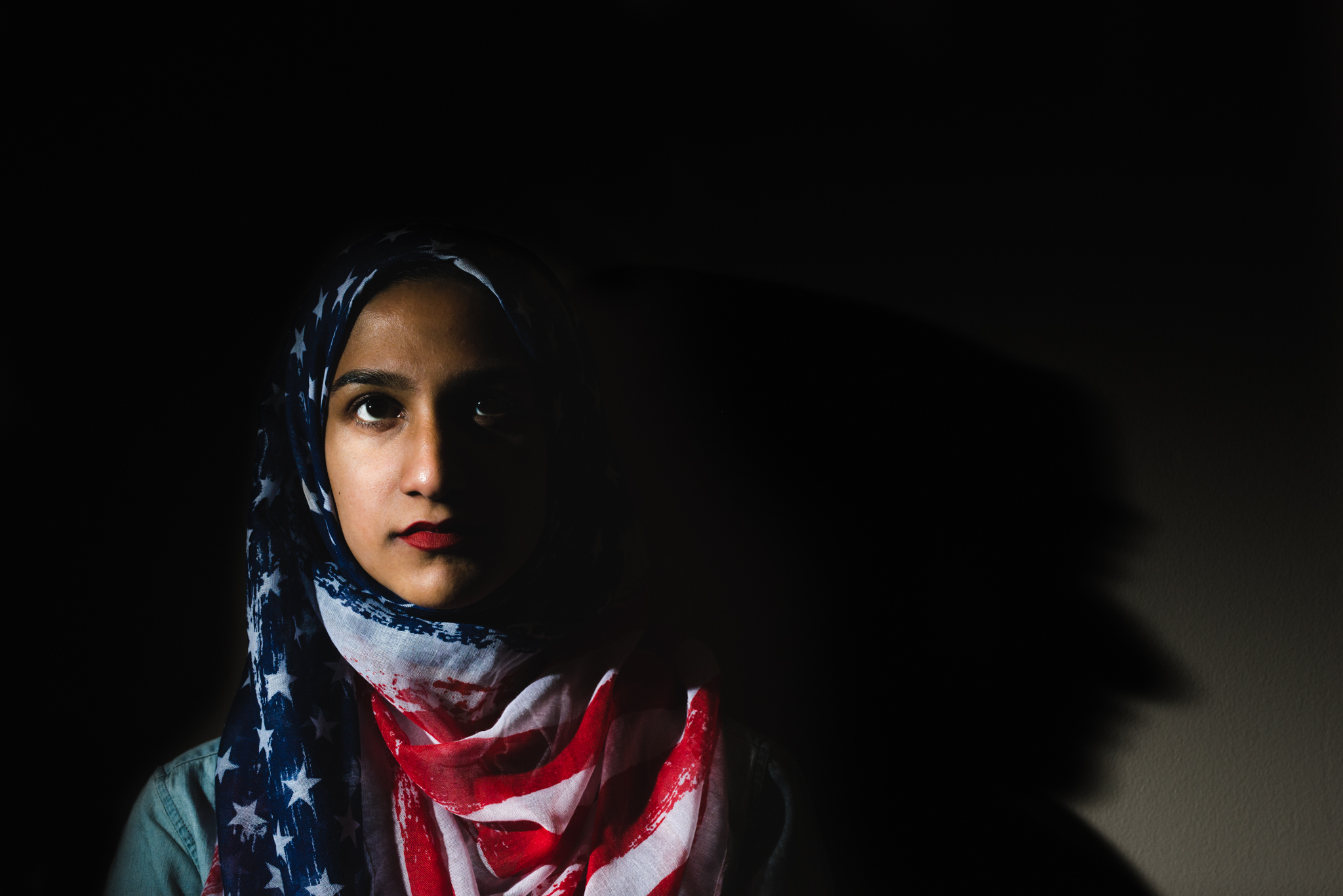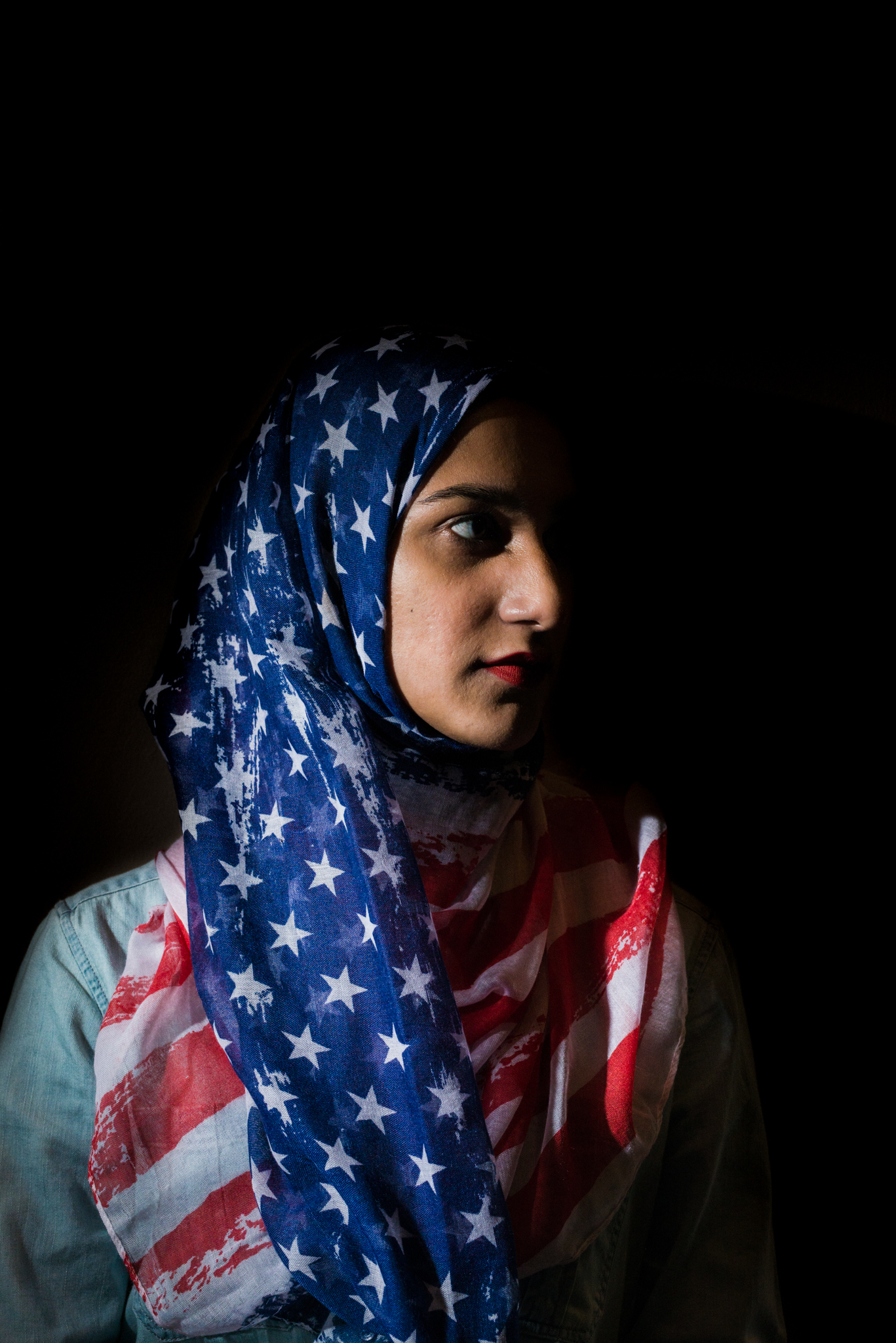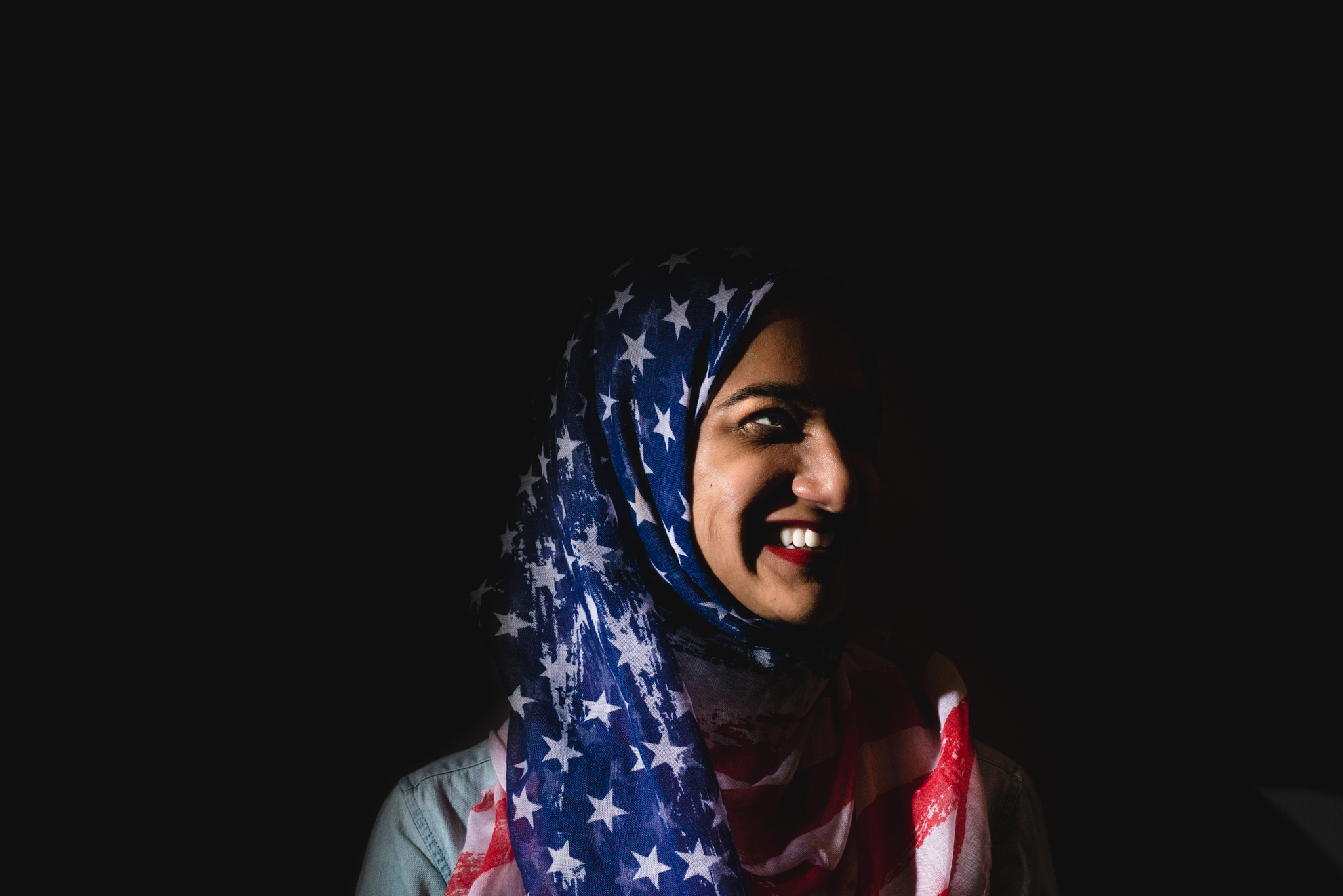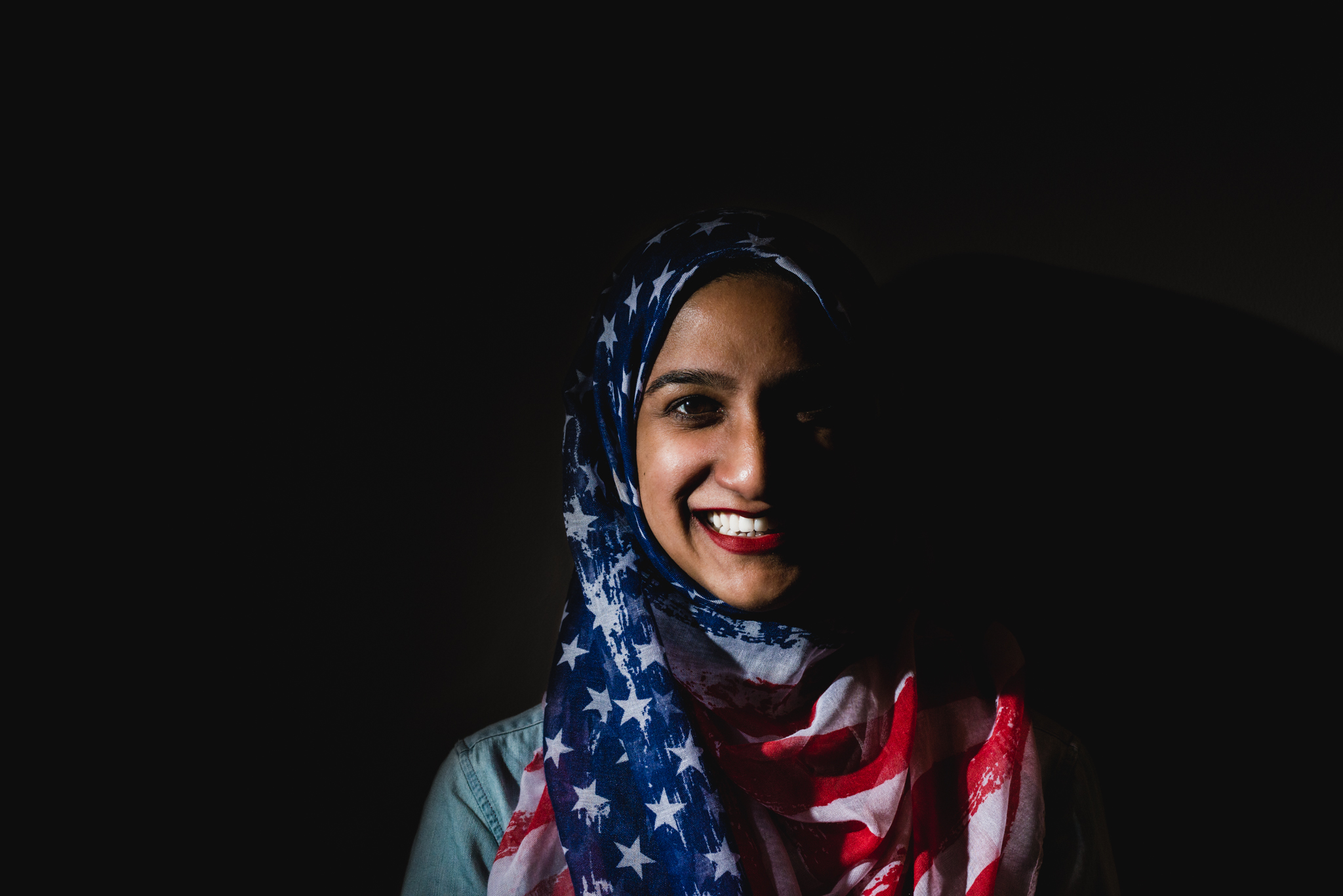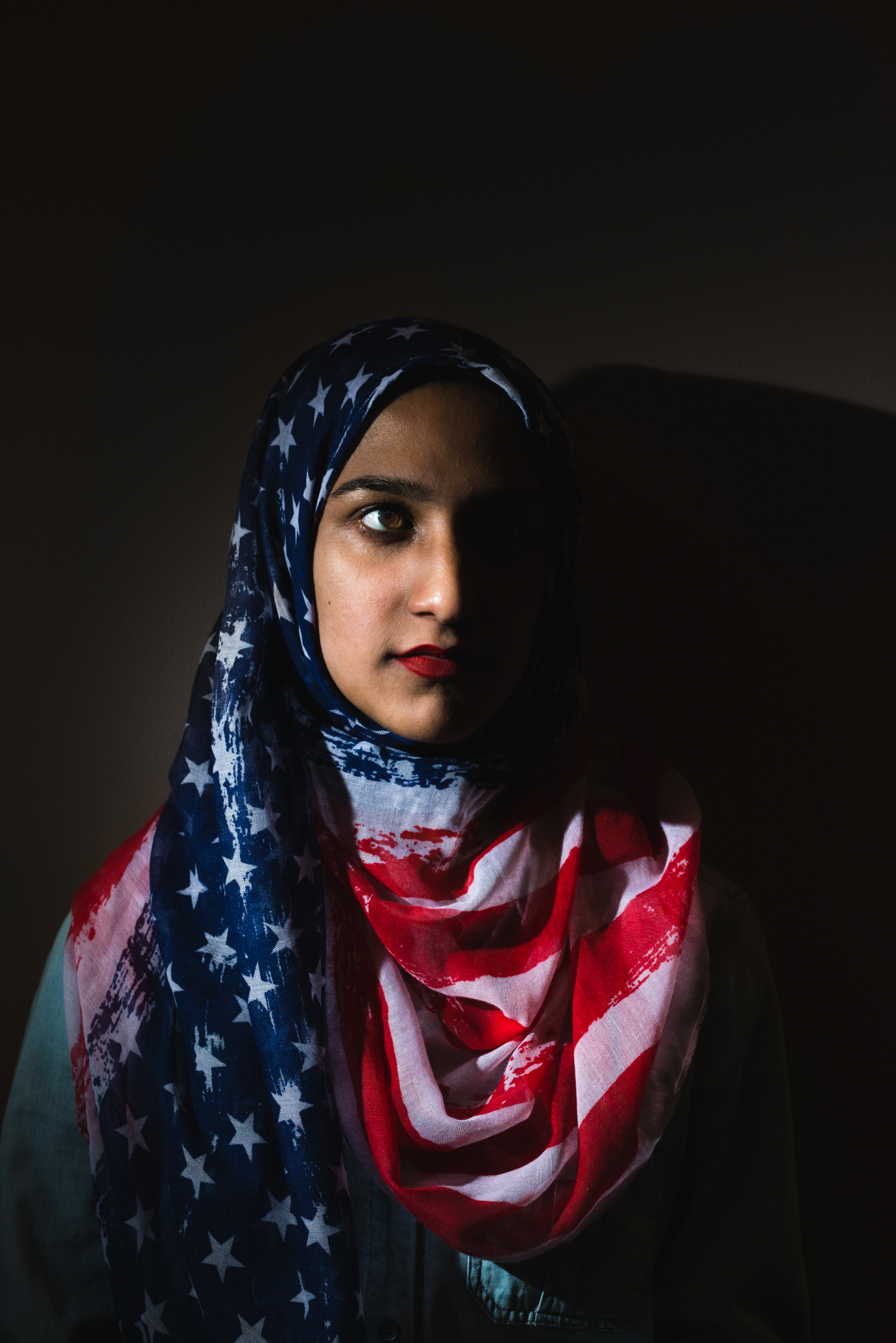The Other Side: Nabiha Quadri
I've known Nabiha ever since we were kids in elementary school. Nabiha's down to earth spirit and compassionate soul has always shown unwaveringly through the years. I'm excited for you to enter into a bit of her story as she shares what it's like to be a Muslim American in today's world.
“My faith is all encompassing; it’s what I identify primarily as.”
Nabiha Quadri is a third year medical student at St. Louis University.
On Identification
I'm Muslim by religion; by race I'm Indian. By nationality I'm American as I was born here. I guess I'm a very broad mixture. My faith is all encompassing; it's what I identify primarily as. Islam for me isn't just a religion that I pick things from; it's more of a way of life. It guides [my] every being. It's not just 5 prayers, [my faith] is in my actions, morals, mannerisms, the way that I speak to people. It's in everything that I do, a guiding force in [my] life.
In terms of culture versus religion, it's interesting in that I have my Islamic principles, but I still have the cultural principles from the Indian cultural background, which sometime overlap, sometime interfere with, and sometime contradict Islamic principles. On top of all that, I have being born and raised in America. So dealing with all that while being a regular American teenager growing up, it's really an interesting mix.
“If you come in with your preconceived notions about who I am, then a lot of times it won’t change.”
On the Idea of Being "Different"
Every day is different. It's never been a problem or an issue for me to be like "Ok I am an American, I am Muslim, I'm Indian, I'm a woman," until you start realizing that the experiences you have as any one of those things or all of those things aren't the same experiences as anyone who is not any one of those things. For the most part they're microagressions, such as walking into a store. I shop a lot, so when I'm shopping by myself I've never been aware of [how I'm treated differently] than when I started shopping with a bunch of white girls. [I noticed] that I'm not immediately greeted, smiled upon, asked if I needed help [when I'm by myself]. Little random things like that. Which isn't to say it's every time or [being a minority is] the reason why it's happening, but it builds up.
“No matter how close of a friendship you can have with someone who is different than you, you’ll always have that unspoken bond with somebody who has had that similar experience as you growing up. ”
On Wearing the Hijab
I grew up with the religion so I learned from a young age how to read Arabic so I could read the Quran, the Holy Book. I learned how to pray the five prayers. It's always been a part of me. My decision to wear the hijab prominently identified myself as Muslim. That was before high school, my two best friends and I decided that we were just going to start it. Muslim women wear [the hijab] because it is told by God in the Quran that you are supposed to wear it; you're supposed to start wearing it technically after puberty. It's for the purpose of modesty. It's a concept for both women and men, with women it's included to cover your hair as well. Both Muslim men and women are supposed to be modest in their appearance and their interactions with one another. That's the overall concept of the hijab. It's really your decision to wear the hijab at some point in your life; it's not forced.
At the time it was surprisingly [not difficult] to wear the hijab. September 11th happened when [I] was in third grade, in 2001. We were 8 years old and I was either young and naive enough that nobody did anything to me, or that I didn't notice anything different in my status. I didn't know anything about Islamophobia or hatred against Muslims. I was just too young to understand anything that was happening at the time. My biggest worry was the day before 9th grade registration I was like "What would my friends say?" Literally, I went to registration and nobody said anything. I feel like it was a much bigger thing in that moment socially. Obviously nobody really cared. 2007 was far enough removed from 2001 that I didn't have any negative experiences when I first put it on. I had the regular high school experiences; having crushes on boys, trouble with school, worries about getting into a good college. It was a very normal teenage American experience that I went through, minus me wearing a hijab.
I did have one incident [in high school], when I was running for class council. We're allowed to put up posters to campaign; I had them all over the school. I walked by one of the posters I had put up and noticed something was written on it. I walked up closer and saw the word "terrorist" scribbled across my face. I had to hold back tears as I ripped the poster down. I went about the rest of my day as normal, and pushed it out of my memory since then. I still try not to think about it too much, it hurts too much.
On Community
There has always been a community for me to go to, my family and friends, that helped me reconcile with all these different parts of myself. I've always had a very strong community that I could turn to. I feel like [minorities] gravitate towards one another, especially when you're young. Currently I'm in St. Louis, Missouri, which isn't a very diverse place. The majority of my friends are white, but my closest friends are either Muslim or Indian because there's nobody else that can really empathize or understand the experiences you have been through. It's just so comfortable with them. No matter how close of a friendship you can have with someone who is different than you, you'll always have that unspoken bond with somebody who has had that similar experience as you growing up.
“I wouldn’t want to be anyone else than who I am. ”
On Challenges
A lot of the assumptions are media based. So if I'm meeting someone for the first time, their first assumption is "oppressed" or something from Islam that they once heard. I think people [also] assume that I'm quiet or subservient almost or either super religious because of my headscarf. I'm actually a very loud person and I hate the word "subservient," it pisses me off. I'll speak my mind. I'm religious, but it depends - there are so many different definitions of religiosity and how you practice. There's not really any one definition to it. It's definitely between you and God.
Fundamentally and theologically all [Judeo-Christian-Islam] religions have so many similarities. There are a few big things that are different, but by and large, they're very similar. Especially in the way you're supposed to interact with people, your morals, values and passions. It's very interesting to see that within each faith and towards each faith how even though you preach these values, they're not always practiced. It's crazy that there is that level of animosity given the similarities in the commandments.
I don't like to think about the challenges or negative things that come with [being a minority]. I'm not really one to complain about things that aren't going to be different. Diversity in my friend groups brings a positive aspect to both my life and everyone's lives that we're in. I wouldn't want to be anyone else than who I am. I've never had a problem with who I am which is why I don't like to think about challenges. Even if other people have a problem with me, I don't really care since it's their problem.
On Islam and the Media
Conventionally at least, the overall Islamophobic sentiment in the media sucks. It has real life repercussions. Such as the girl who was killed in DC during Ramadan as she and her friends were heading back to the mosque. It's being cited as due to road rage, this man kidnapped and murdered her. She was wearing the full dress and hijab. When things happen to Muslims versus when things happen by Muslims, people always think, "What if it was the other way around?" If this person who had road rage and was a Muslim, it would absolutely be called terrorism right away. Muslims are the primary victims of terror attacks in the world. The media portrays it the other way around, where any terror attack that happens people [assume] it's a Muslim. A study was just found that terror attacks perpetuated by a Muslim get 5 times more media coverage than if they're perpetrated by anyone else. Because of these feelings and whatever is being generated, they do have real life consequences, whether it is something as small as microagressions I experience on a daily basis, to bigger incidents that have happened to me that I refuse to talk about, all the way up to murder and general hatred. These are some of the biggest challenges to deal with, even though I am just another American 24 year old trying to figure my life out. That's the added layer on top that we have to deal with from other people.
“I don’t have a problem with the way I am, but it is funny feeling that way when the world is so determined to hate you even though they don’t know you.”
On the Day-to-Day
There are definitely things happening at a much larger level that affect everyone. I live my life on a very day-to-day basis, just trying to figure out life. Occasionally I am hit by what is going on in the world and it's insane. This whole year has been so hard. Like focusing on school; I have to make an active effort to not look at the news otherwise I would be so upset and worked up about it. I would literally have to shut it out to focus on my studies.
I'm just a regular person. That's the biggest thing. When people see any "other," be it a Hijabi Muslim or Asian American, etc., they're so quick to stereotype into what fits their idea of what we should be that they forget this is literally just a person going through the same things that everybody else goes through growing up in America. If you come in with your preconceived notions about who I am, then a lot of times it won't change. I just try to live my life and hopefully through my interactions with everyone in my life, people realize that I'm a normal person and as such all Muslims are normal people. I always feel like because of who I am and how I represent myself, that I am a representation of Islam to the whole world. So I try to think that through with everything that I do. It's always on my mind, "This is how the world sees Islam, this is how you're representing Muslims to other people." It's a heavy weight to have to put this into your every action and everything that you do. I'm just trying to live my life day by day. I don’t have a problem with the way I am, but it is funny feeling that way when the world is so determined to hate you even though they don’t know you.







